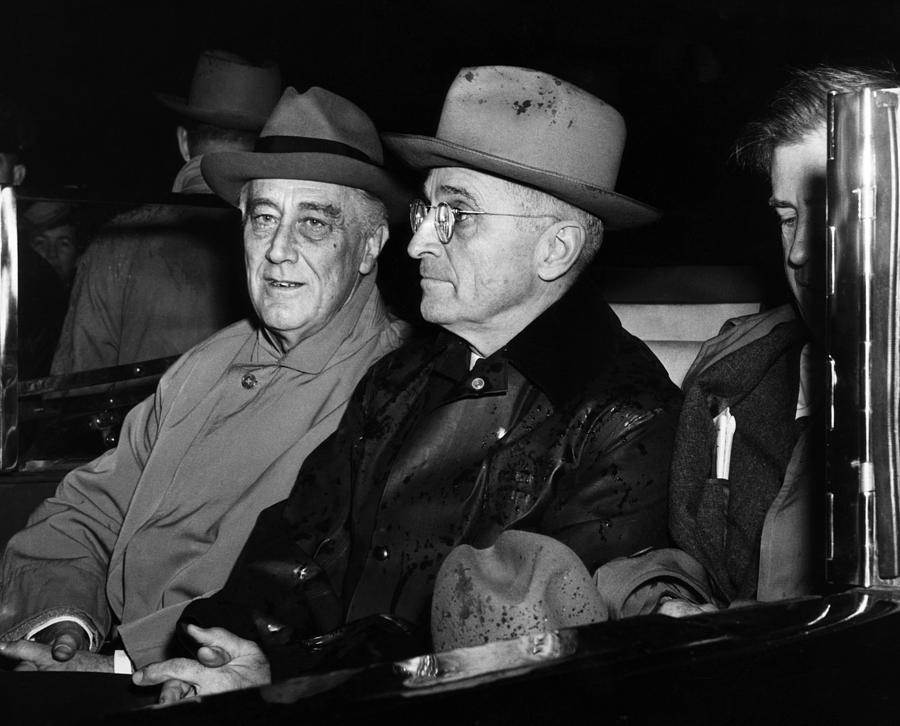Unraveling The Legacy Of FDR's Vice President In 1940
The year 1940 marked a significant chapter in American history, particularly with the re-election of Franklin Delano Roosevelt (FDR) as President of the United States. This period was not only pivotal for the nation but also for the political dynamics of the White House. Roosevelt's choice of vice president played a crucial role in shaping the administration's policies and responding to the challenges of the time. As tensions escalated globally, the role of the vice president became more pronounced, influencing both domestic and foreign affairs.
In the 1940 election, FDR selected Henry A. Wallace as his running mate, a decision that sparked considerable discussion among political analysts and historians alike. Wallace, who had previously served as the Secretary of Agriculture, brought a unique perspective to the ticket, focusing on progressive agricultural policies and social justice. His vision aligned with FDR's New Deal initiatives, which aimed to uplift the American economy and provide relief to those affected by the Great Depression.
The partnership between FDR and Wallace was not without its complexities. As the world edged closer to war, the challenges the administration faced required a strong and united front. Wallace's progressive stance, while appealing to many, also drew criticism from more conservative factions within the Democratic Party. Understanding the intricacies of this partnership is essential to grasping the broader historical context of FDR’s presidency and the political landscape of the early 1940s.
Who Was FDR's Vice President in 1940?
In 1940, FDR's vice president was Henry A. Wallace. Wallace was a key figure in the Democratic Party and served as the Secretary of Agriculture before his vice presidency. His progressive policies and advocacy for agricultural reform made him a fitting choice for FDR, who was focused on implementing the New Deal.
What Were Henry A. Wallace's Contributions?
Henry A. Wallace made several notable contributions during his time as vice president. Some of his key contributions include:
- Advocating for progressive agricultural policies that aimed to support farmers.
- Promoting social justice initiatives that aligned with FDR's New Deal.
- Playing a significant role in foreign policy discussions, particularly regarding relations with the Soviet Union.
- Supporting civil rights movements and labor organizations during a time of significant social change.
What Challenges Did FDR and Wallace Face Together?
FDR and Wallace faced numerous challenges during their administration, including:
- The looming threat of World War II and the need to prepare the nation for potential involvement.
- Domestic issues stemming from the Great Depression, requiring innovative economic solutions.
- Balancing the interests of different factions within the Democratic Party, especially as Wallace's progressive ideas clashed with more conservative views.
- The need to maintain public support amidst growing concerns about international conflicts.
What Impact Did Wallace Have on FDR's Policies?
Wallace's influence on FDR's policies was profound. His commitment to progressive reforms helped shape several key initiatives, including:
- New Deal Programs: Wallace's agricultural insights contributed to the development of programs aimed at stabilizing prices and ensuring food security.
- Social Welfare Initiatives: His advocacy for social justice led to the inclusion of more comprehensive welfare programs in FDR's agenda.
- Foreign Relations: Wallace played a significant role in fostering a cooperative relationship with the Soviet Union during a critical time in international politics.
How Did FDR's Vice Presidency Evolve in 1940?
The vice presidency under FDR in 1940 evolved into a position of greater prominence due to the global and domestic crises facing the nation. Wallace's active involvement in policymaking and his strong public presence marked a shift in how the vice presidency was perceived. The role became more than just a backup for the president; it transformed into a platform for advocating progressive change.
What Legacy Did FDR and Wallace Leave Behind?
The partnership between FDR and Wallace left a lasting legacy in American history. Their collaboration demonstrated the importance of progressive policies in times of crisis and the need for strong leadership. Key aspects of their legacy include:
- A commitment to social justice and economic reform.
- The establishment of essential welfare programs that continued to influence future administrations.
- A more proactive approach to foreign policy, particularly in relation to the Soviet Union.
What Can We Learn from FDR and Wallace's Relationship?
The relationship between FDR and Wallace offers valuable lessons for contemporary politics. Key takeaways include:
- The Importance of Collaboration: Effective governance often requires collaboration across different political ideologies.
- Progressive Vision: Leaders who prioritize progressive policies can foster significant social change.
- Adaptability in Leadership: The ability to adapt to changing circumstances is crucial for effective leadership, especially during crises.
Conclusion
In conclusion, the story of FDR's vice president in 1940, Henry A. Wallace, is a testament to the power of progressive leadership in shaping American history. Their partnership during a time of unprecedented challenges not only influenced the policies of their administration but also set the stage for future discussions on social justice and economic reform. By understanding their legacy, we gain insight into the complexities of governance and the enduring impact of visionary leadership.
Unveiling The Artistic Genius Of Rodin Rodin
Inspiring Quotes From Huey Newton: A Legacy Of Change
Exploring The Magical World Of J.K. Rowling's Books



